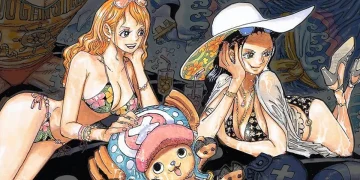A lot of anime in the shonen genre feature demons, Shinigami, gods, souls, and Death as some indulging themes to please their viewers. I have come across a lot of shonen anime, and the entire aesthetic of souls and Death appeals to me a lot.
Soul Eater is one such anime that stood out to me for the way it portrayed a great storyline of blending humans and souls into mass destruction weaponry. It is quite a wild approach to a genre where we see exorcists demolishing souls instead of using them for their benefit. And, having a soul turning into a weapon, what else can you want more?
Soul Eater, as an anime, questions the perspective of the viewer on how far they can go to protect a life with meaning and a soul attached to it. With that being said, let us talk more about what makes Soul Eater a genre of its own. Spoilers ahead!
About Production
Soul Eater was originally released as a manga series by artist Atsushi Ohkubo in May 2003 and ended in August 2013. Following its release, Soul Eater was quick to gain fans for its dark comedy, gothic style, and erratic storytelling. The manga started as one-shots that were received well by the Japanese public and worked to be the initial chapters of the manga series.
The manga received great reviews from the community and was named to be the 7th best-selling manga series of all time. With such great dedication to the manga, it was soon adapted into a 51-episode-long anime series that aired between 2008 to 2009. The series was produced mainly by TV Tokyo and Bones production with direction led by Takuya Igarashi.
The characters and storyline were inspired by the original concept that reflected the roots of the anime taken from the manga series. The series was quick to make a breakthrough on the internet with its dark humor and fantasy concepts that made an impact in the shonen genre, similar to D.Gray-man and Bleach.
Brief Synopsis of Soul Eater
Soul Eater tells the story of three students attending Death Weapon Meister Academy, namely Maka and her scyther partner Soul, Death the kid and his gun partners Liz and Patty, and Black Star with his ninja weapon partner Tsubaki.
The students attending the Academy aim to feed their humanoid weapon partners with 99 souls and an additional soul of a witch that would make them turn into death scythes used by Shinigami and meister across the world.
The story is set in an alternative universe in a city named Death city, located in the USA. The Academy is run by Death itself or known as Shinigami in the anime series. What follows is the journey of these three characters in battling evil souls and meisters and turning their weapons into the ultimate death scythe to defeat evil threatening to destroy the world.
Thoughts And Reviews
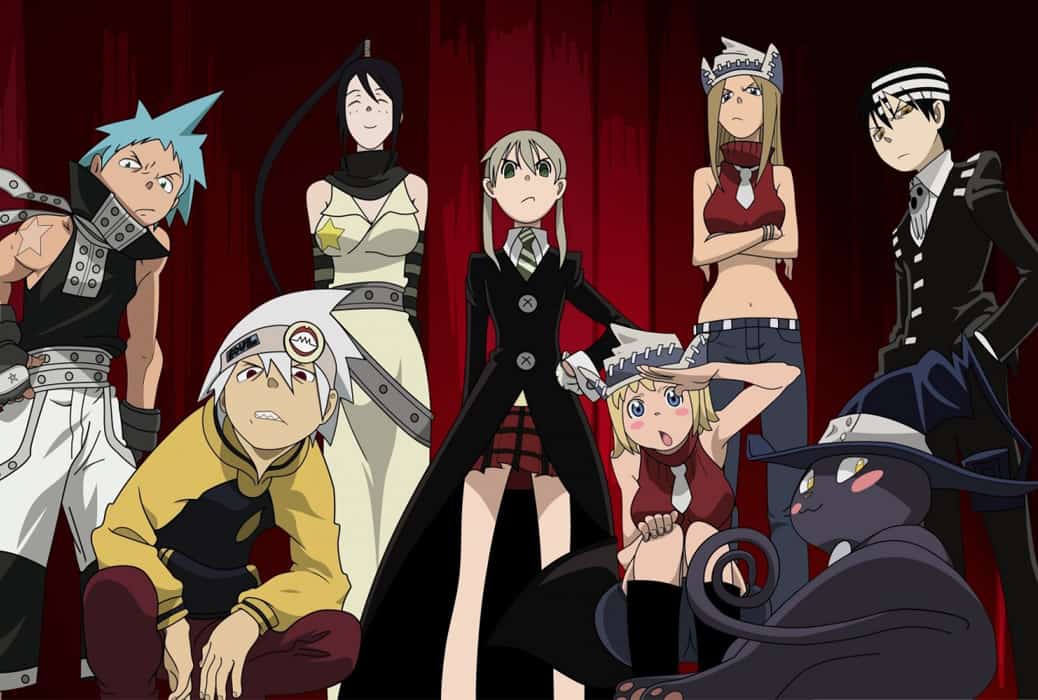
Soul Eater has a different aura to it when compared to most shonen anime, including Demon Slayer, Jujutsu Kaisen, or Tokyo Ghoul. If I have to make a simple comparison with what similarities Soul Eater draws from other anime, then it will be mainly from the works of D.Gray-Man.
As a major D.Gray-Man fan, Soul Eater combines the themes of dark fantasy with light humor and a complicated storyline. I would expect nothing less from Bones’ production as they are popularly known for their cinematics in action and fights.
But, what falls short is after a particular time frame, the plot just gets weak, and it focuses more on the action scenes and reduced comical elements or world-building. Sitting through all 51 episodes was a little rigid, with my attention spiraling everywhere but what Soul Eater wanted me to focus on.
The themes might be very generic with an Academy led by Death to train young teens or adolescents on how to wield their soul-eating weapons, but there are many ways where the series was made to be more unique to the viewers. But, again, it is a very obvious take on the shonen genre. What made Soul Eater stand out was probably this mingle of making the characters wield actual souls to defeat other souls.
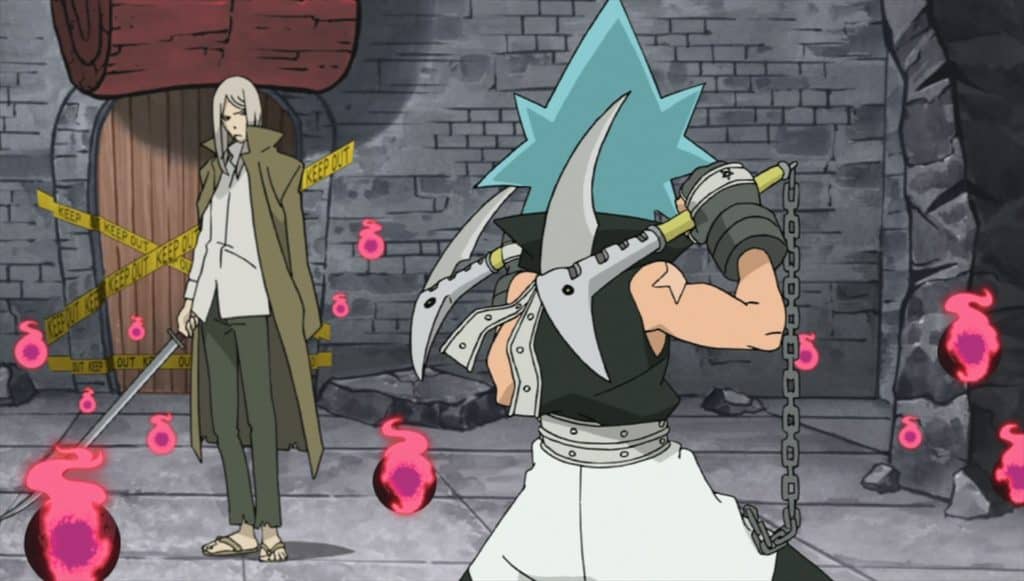
No, it is not blood magic or manipulation of psychic power as seen in Mob Psycho 100 or My Hero Academia but actual soul beings that can turn into weapons and ultimately something called Death scythes which are the strongest weapons that can defeat any soul to exist.
But, there is no definitive on exactly what these do. More like you level up your weapon in a video game and then get better at using it to defeat even more powerful enemies, and that is just about it. Frankly, I enjoyed D.Gray-Man because it had some fantastic character designs and a complex plotline which is what was an instant reminder when I watched Soul Eater.
Both the plots are extremely similar, with subtle differences being Innocence replaced by Souls and Akumas replaced by witches. A few things that I enjoy about Soul Eater are that each character has some standout features, be it striped hair or spikey ones or colorful clothing, or the different weapons that they identify with.
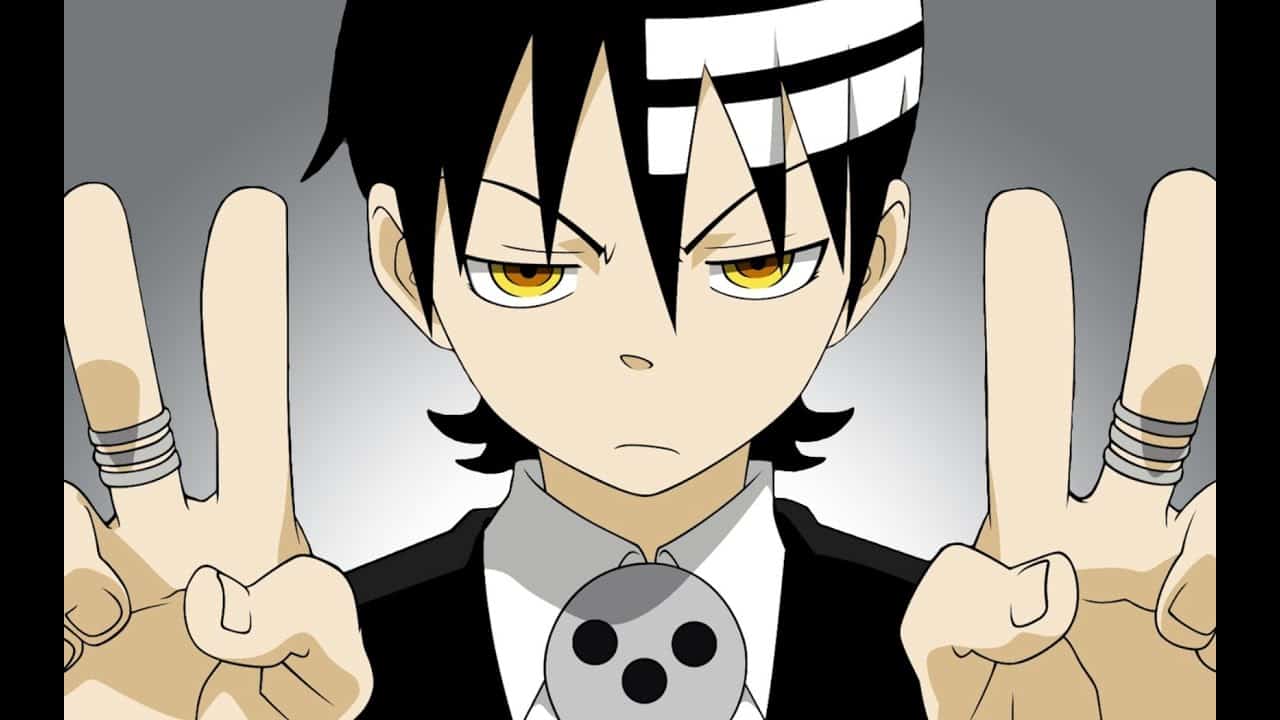
Another good take is gothic animations which include the large smiley sun or pointy towers and ribbed architectural set-ups, all count to this weird and vibrant vibe that makes Soul Eater present a different approach to Japanese animation.
Regardless, it falls out in terms of characterization and arcing of the story. Sometimes, it feels like there is too much happening in Soul Eater, while other times, it seems too indulged in dragging a few episodes with introductions and fickles of humor to keep the audience engaged. What falls short is how there are plenty of missing elements when you see it outside the Academy.
The world-building is a little disappointing. There is a lack of consistency in dictating what Death City is all about, which gets a little difficult to keep track of. Of course, when you are making an alternative version of a universe, it is expected that it must have some spice to keep the viewers drawn in.
Just like how the classic cartoon Alice in Wonderland plays with the setting of wonderland being this mysterious place full of magic and madness. Soul Eater may seem like a very straightforward anime series, but it has its twists and turns where enemies turn comrades and vice versa.
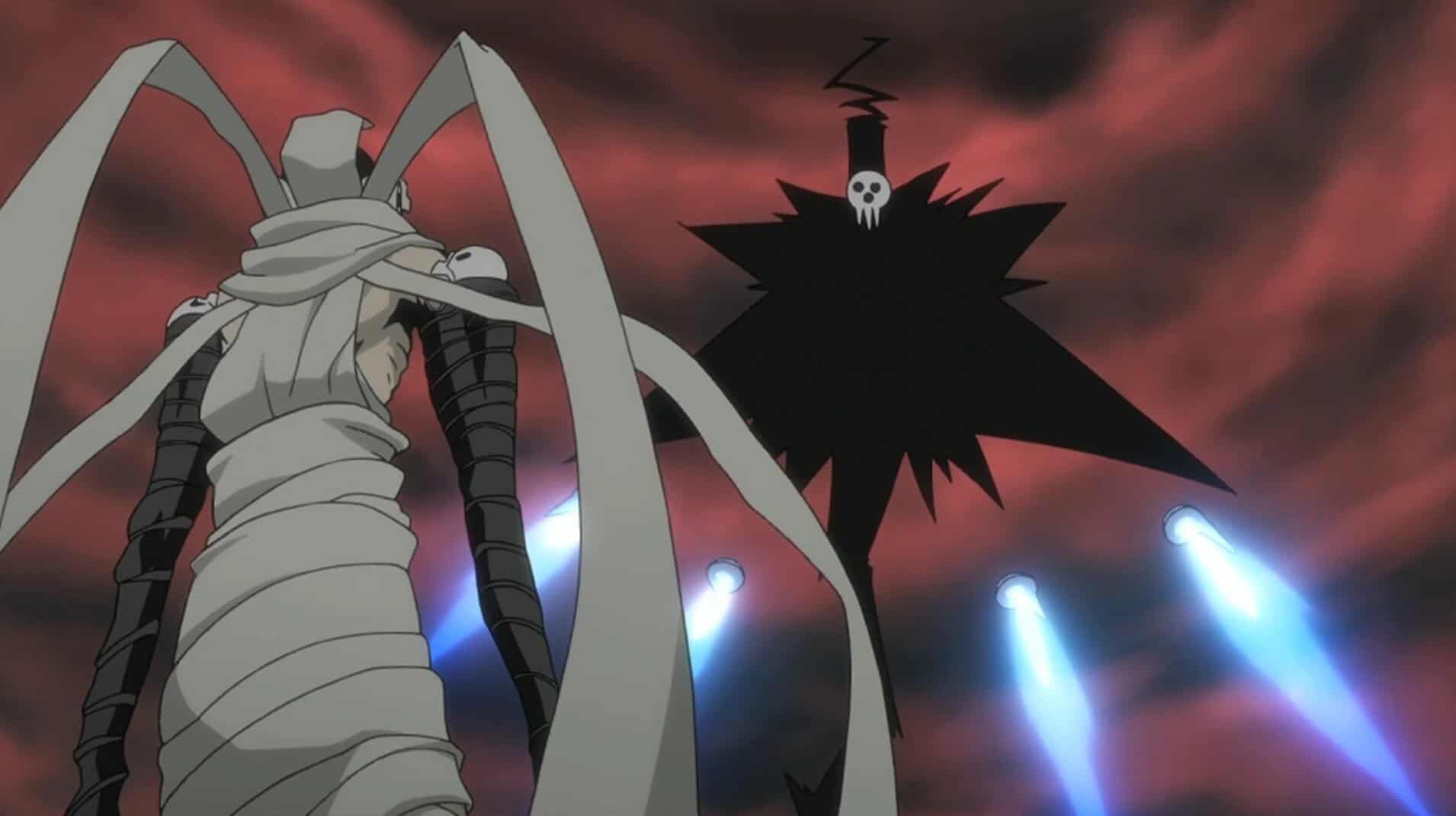
Although there are multiple characters involved, which makes the series overzealous, the ultimate focus comes down to one character, Maka, and her scythe partner, Soul. Maybe, a reason why the series is named Soul Eater to begin with.
The duo ends up being a crucial factor in saving their world from the attack of witches and war. Again, it is to note that the Soul Eater anime series is not a complete adaptation of the original as the series ended before the manga did, which explains the poorly done series ending.
It was, in all honesty, unamusing. What surprised me was how good the series started and how badly they twisted the ending, which felt as if the series was done major injustice in terms of storytelling. In the end, it became more battle-centric, where most of the plot was quickly skipped to just entertain the masses with extreme action mixed with the eerie essence delivered by the art and animation.
Final Verdict
Soul Eater, as a manga series, maybe something that I would prefer over the anime series since the original story is a bit different than what is projected in the anime. A major reason was that the manga was still ongoing when the series was released. I don’t enjoy modified storylines, and plots from the original are probably where Soul Eater anime fell short for me.
Again, it is a great action-fantasy shonen which has its appeal drawn from some amazing fight scenes and battles when you see it from the point of view of early 2000 releases. But to sit through the entirety was an intense task itself.
Soul Eater could have done a bit better when it came to building a good arc for each character involved. As a series, it is self-sufficient and bearable, with some creative takes that make it a bit different from the usual character designs and style.
You might be gravely disappointed if you are expecting a banger of a series ending, which is not the case with Soul Eater, but overall it is great for a one-time watch to know how the shonen genre has progressed from Soul Eater to Demon Slayer.
Our Rating: ⭐ (3.8/5).
You can stream Soul Eater on Crunchyroll and Hulu.
Also Read: Haikyuu Anime Review: Not Your Average Sports Anime

